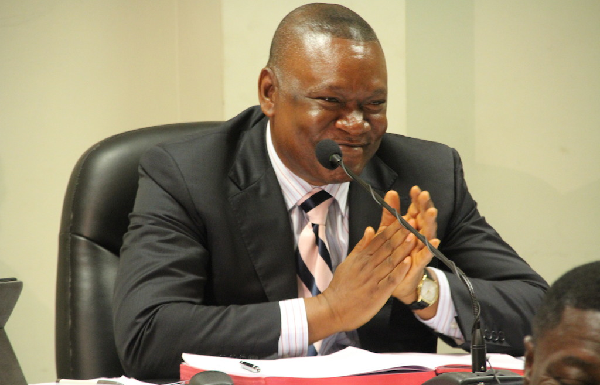Supreme Court nominee Justice Senyo Dzamefe has underscored the critical role of practical wisdom in the delivery of justice, insisting that technical knowledge alone cannot meet the legal needs of ordinary Ghanaians.
Facing Parliament’s Appointments Committee on Monday, June 16, 2025, the respected Court of Appeal judge made it clear that effective jurisprudence requires a deep understanding of context, fairness, and real-life impact, not just the rigid application of law.
“Law is 20% technical knowledge and 80% wisdom,” he said, stressing that good judgment, rather than sheer academic expertise, drives just and balanced outcomes, especially in a country where most litigants face the courts without legal representation.
During the vetting session, Justice Dzamefe put forward bold proposals aimed at unclogging the judicial system and making justice more accessible. He called for fixed timelines to expedite cases, proposing a three-month deadline for criminal trials and six months for civil cases.
“By the end of a court sitting, records should be ready,” he said, recommending the adoption of artificial intelligence tools to generate real-time transcripts, and the introduction of virtual court sessions to eliminate unnecessary travel costs for litigants.
Responding to a question from MP Elijah Akugre, he stressed the need to establish more courts across the country to ease the overwhelming case burden and improve access to justice.
On property-related disputes, Justice Dzamefe clarified that courts are guided by principles of fairness and applicable law. In matters of divorce, he emphasized that jointly acquired property is shared equitably, and that PNDC Law 111 or valid wills govern inheritance matters. Citing the case of Agyei v. Nartey, he said: “The court intervenes to ensure reasonable provision.”
Justice Dzamefe also advocated for the revival of public tribunals, arguing that involving laypersons in legal decisions enhances both fairness and legitimacy.
“Laypeople bring wisdom to cases and cannot be bullied,” he told MP Patrick Yaw Boamah, defending the value of grassroots perspectives in the justice process.
He did not shy away from structural concerns either. In response to a question from MP Hassan Tampuli, Justice Dzamefe raised the issue of the judiciary’s financial dependence on Parliament, noting that while judicial institutions may enjoy legal and administrative independence, true autonomy is compromised without fiscal freedom.
“Judicially and administratively, we are independent. Financially, I don’t think we are, because Parliament allocates our budget,” he explained, adding that financial independence would greatly enhance efficiency and protect institutional integrity.
Justice Dzamefe, a seasoned legal mind, has served on the bench in Sekondi, Swedru, and Accra, and is a former President of the Association of Magistrates and Judges. His nomination comes at a time when calls for judicial reform and faster justice delivery have intensified nationwide.


